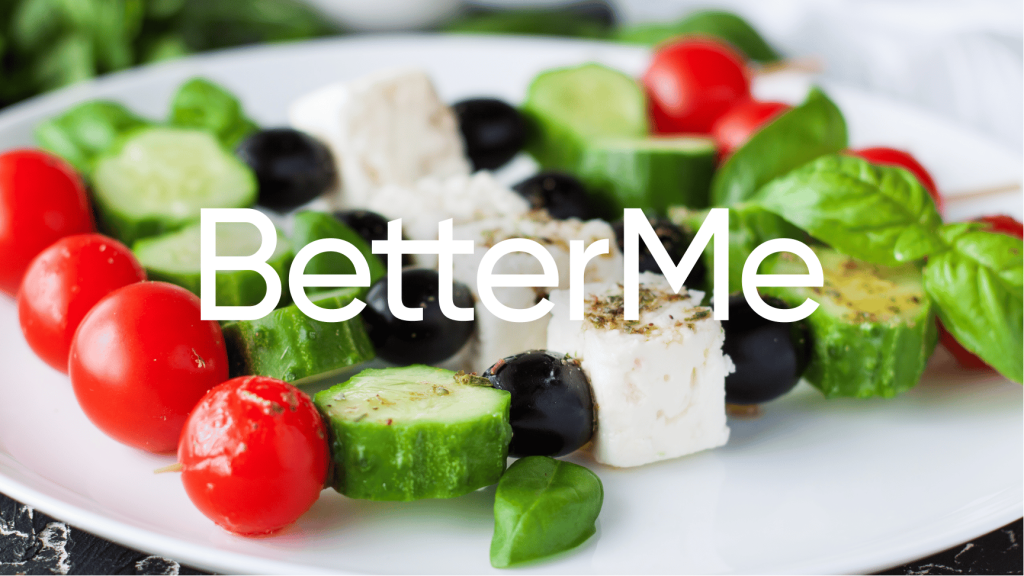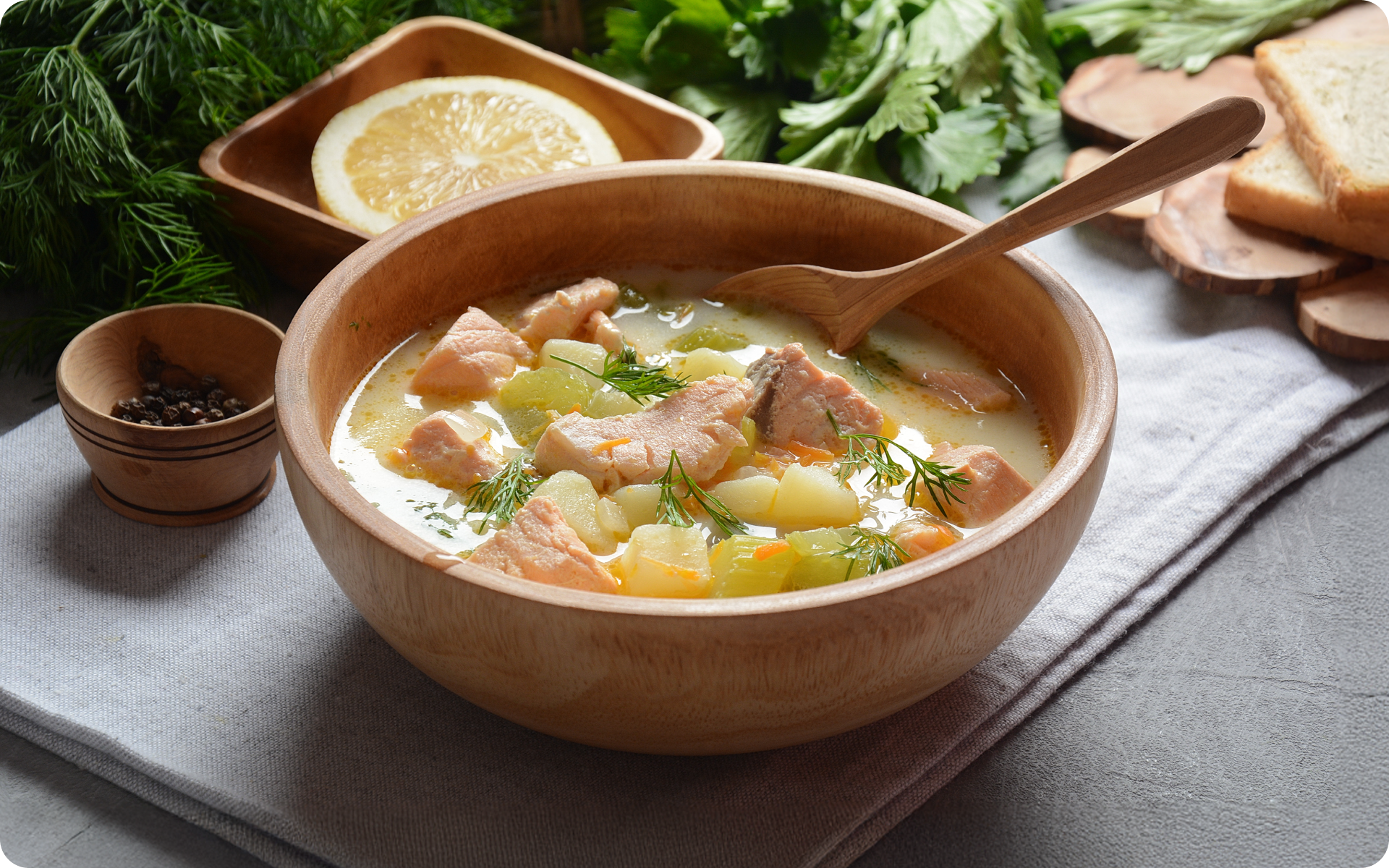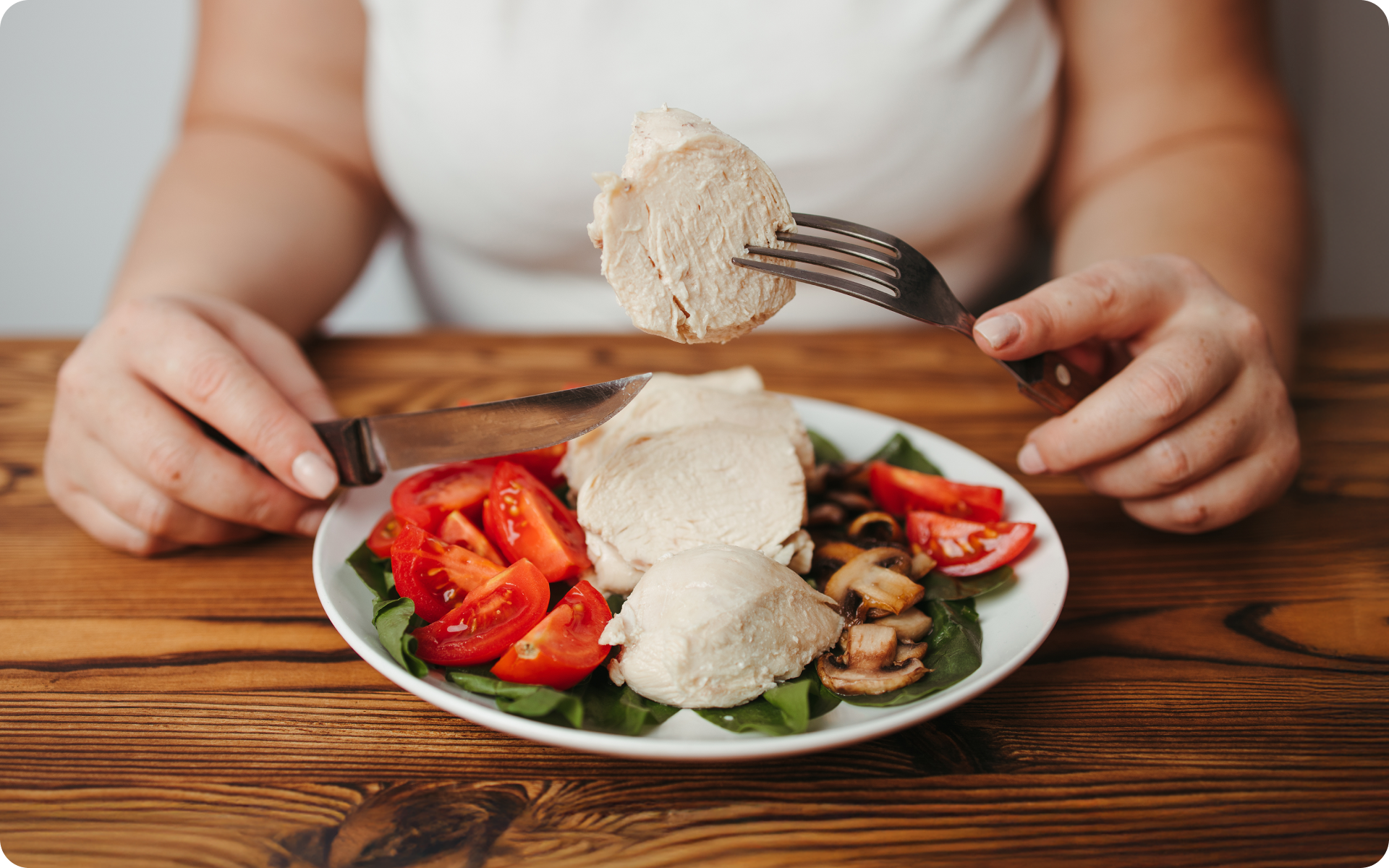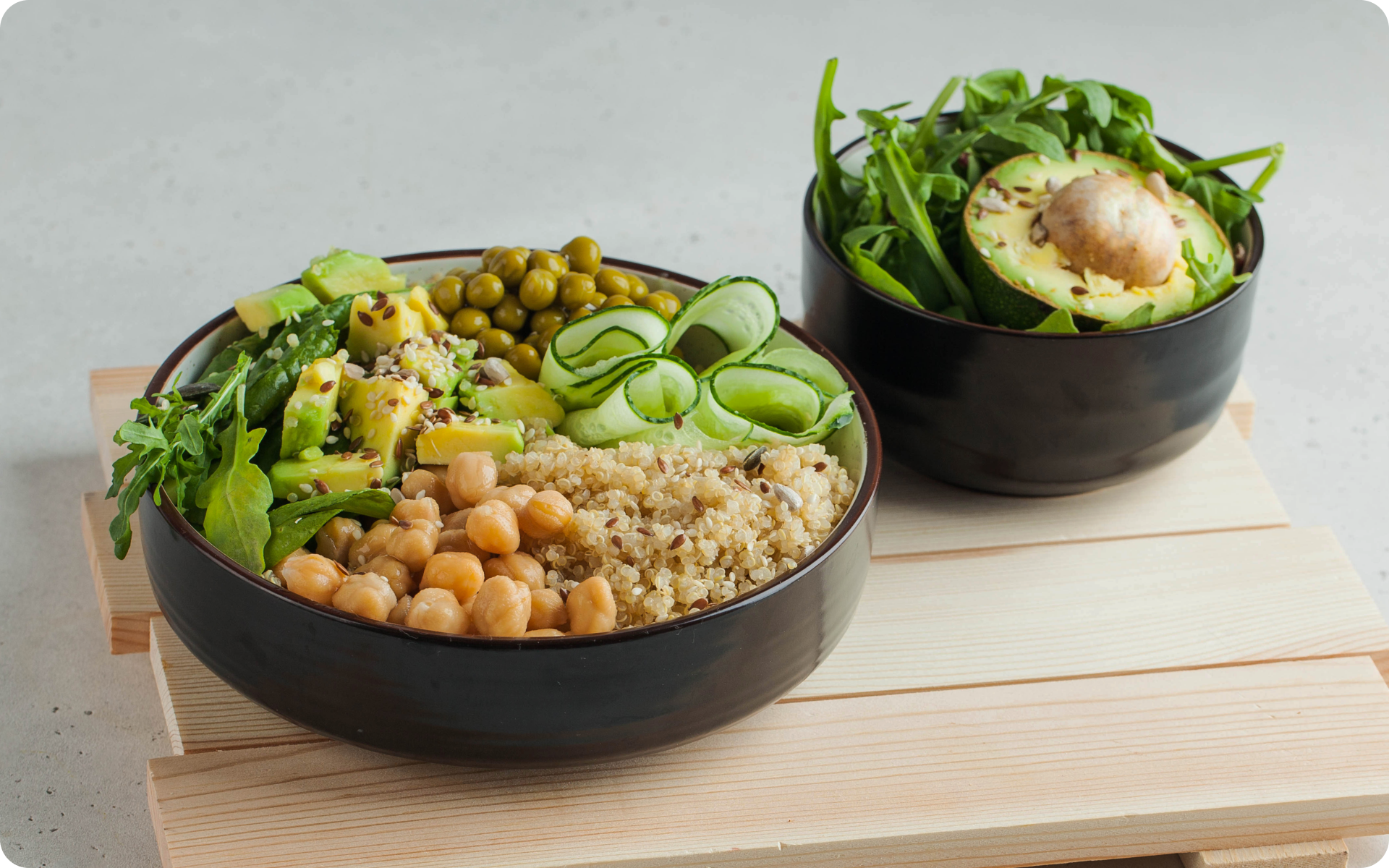Gaining weight can be just as challenging for some individuals as losing weight is for others. There are various reasons why someone might need to gain weight. It could be because of medical conditions, recovery from illness, or simply having a naturally fast metabolism that makes it difficult to maintain a healthy body mass.
In such cases, following a structured diet plan can be crucial in achieving the desired weight gain safely and efficiently.
This comprehensive guide is designed to provide you with evidence-based information and practical advice on how to effectively start to gain weight within a week.
Our goal is to help you achieve your desired results by focusing on nutrient-dense foods, proper meal planning, and optimal exercise routines.
How Can I Gain Weight In 7 Days?
Weight gain occurs when your body receives more calories than it burns, resulting in a positive energy balance. To gain weight in 7 days, you’ll need to create a calorie surplus by increasing your food intake and focusing on nutrient-dense weight gain foods that support healthy weight gain.
Keep in mind that a safe and sustainable rate of weight gain is around 0.5-1 pound (0.2-0.45 kg) per week. While it’s possible to see some changes on the scale within 7 days, remember that rapid weight gain can be unhealthy and may have negative side effects.
To achieve weight gain in 7 days, follow these guidelines:
Increase Your Calorie Intake
Consume an additional 250-500 calories per day above your maintenance level. This should help you gain 0.5-1 pound (0.2-0.45 kg) per week.
Eat Nutrient-Dense Foods
Focus on foods high in protein, complex carbohydrates, and healthy fats. You can include lean meats, dairy products, whole grains, legumes, nuts, seeds, and avocados in your diet.
Have Frequent, Balanced Meals
Eat 5-6 smaller meals throughout the day rather than 3 large meals, as this helps you eat more overall and ensures a steady supply of calories.
Strength Training Exercises
Incorporate strength training exercises into your routine to support muscle growth and prevent excessive fat gain. Aim for at least three sessions per week, targeting all major muscle groups.
Reasons why BetterMe is a safe bet: a wide range of calorie-blasting workouts, finger-licking recipes, 24/7 support, challenges that’ll keep you on your best game, and that just scratches the surface! Start using our app and watch the magic happen.
Get Enough Sleep
Ensure that you get 7-9 hours of quality sleep every night, as this is crucial for muscle recovery and overall health (5).
Extreme measures for rapid weight gain, such as overeating or consuming unhealthy, calorie-dense foods, can lead to unwanted fat gain and potential health issues. Always prioritize a balanced and nutrient-dense diet for safe weight gain.
How Much Weight Can You Gain In 7 Days?
The amount of weight you can realistically gain in 7 days depends on various factors, including your age, gender, metabolism, activity level, and starting weight.
A safe and sustainable rate of weight gain is said to be around 0.5-1 pound (0.2-0.45 kg) per week.
To achieve this rate of weight gain, you’ll need to create a calorie surplus by consuming an additional 250-500 calories per day above your maintenance level. In 7 days, this should result in an approximate weight gain of 0.5-1 pound (0.2-0.45 kg).
However, factors such as water retention and fluctuations in glycogen stores can impact the numbers on the scale, even over short periods like 7 days. Understanding these factors is essential when evaluating weight changes, as they can sometimes give a misleading impression of actual fat or muscle gain.
Water Retention
The human body tends to retain water for various reasons, including hormonal fluctuations, high sodium intake, dehydration, and inflammation.
When your body retains water, it can cause temporary weight gain that may not necessarily reflect changes in fat or muscle mass. Water retention can make the scale fluctuate daily and can be influenced by different factors, such as diet, exercise, and hydration levels.
Glycogen
Glycogen is the stored form of glucose, which serves as a primary energy source for your body. It is mainly stored in the liver and muscles. Each gram of glycogen is bound to approximately 3-4 grams of water (6).
When you consume excess carbohydrates, the body converts and stores some of the excess glucose as glycogen, leading to an increase in both glycogen and water stores. This, in turn, can contribute to a temporary increase in body weight that does not necessarily reflect changes in fat or muscle mass.
Consider these factors when assessing weight changes over short periods, such as 7 days, and focus on long-term trends and overall health improvements rather than just the numbers on the scale.
How Can A Skinny Person Gain Weight Fast?
For a skinny person who is aiming to gain weight fast, it’s essential to implement long-term strategies that promote healthy and sustainable weight gain.
Here are several effective approaches:
Adjust Macronutrient Ratios
A balanced diet with an optimal ratio of macronutrients (protein, carbohydrates, and fats) is key to gaining weight.
Aim for a diet that consists of 10-35% protein, 45-65% carbohydrates, and 20-35% fats (3). This combination will ensure that you consume enough nutrients to support muscle growth and overall health.
Protein
Prioritize high-quality protein sources like lean meats, poultry, fish, eggs, dairy, legumes, nuts, and seeds. Aim for 1.2-2.0 grams of protein per kilogram of body weight daily to support muscle growth (3).
Carbohydrates
Focus on complex carbs like whole grains, brown rice, oats, quinoa, fruits, and vegetables to provide sustained energy, fiber, and other nutrients (1).
Fats
Incorporate healthy fats from sources like olive oil, avocados, nuts, seeds, and fatty fish to support hormone production, brain function, and overall health (2).
Track Your Progress
Keep a food diary to monitor your daily calorie intake and make necessary adjustments to ensure you’re consistently consuming a calorie surplus. Use a smartphone app or online tool to track your meals, portion sizes, and nutritional values.
Regularly weigh yourself and take body measurements to gauge your progress and make changes if needed.
Progressive Overload in Strength Training
To stimulate muscle growth and avoid plateaus, continually challenge your muscles by increasing the intensity, volume, or frequency of your strength training workouts.
Gradually increase the weights you lift, the number of sets or repetitions, or incorporate more challenging exercises to keep your muscles adapting and growing.
Prioritize Recovery
Giving your body enough time to recover is crucial for muscle growth and overall health. Schedule regular rest days, get 7-9 hours of quality sleep each night, and practice stress-reducing activities like yoga or meditation.
Adequate recovery will optimize hormone production, support muscle repair, and reduce the risk of injury.
Stay Consistent
To achieve healthy and sustainable weight gain, it’s vital to remain consistent with your diet, exercise, and recovery routines. Long-term commitment to these strategies will yield better results than short-term, extreme measures.
Set realistic goals, celebrate small victories, and stay patient as your body gradually adapts and grows.
Read more: Gain Weight & Muscle: The Right Way With These High Calories Keto Foods.
Which Food Is Best For Weight Gain?
Here are the best foods for weight gain, along with their benefits and examples:
Protein-rich Foods
Protein is essential for building and repairing muscle tissue, especially when combined with strength training exercises. Consuming high-quality protein sources can help increase muscle mass and promote healthy weight gain (8).
- Lean meats (chicken, turkey, lean beef)
- Fish (salmon, tuna, mackerel)
- Eggs
- Dairy products (milk, yogurt, cheese)
- Legumes (lentils, chickpeas, beans)
- Nuts and seeds (almonds, peanuts, pumpkin seeds)
Complex Carbohydrates
Complex carbs provide sustained energy and support muscle growth by replenishing glycogen stores. They also aid in maintaining a calorie surplus, which is essential for weight gain.
- Whole grains (brown rice, quinoa, whole wheat bread, oats)
- Starchy vegetables (sweet potatoes, potatoes, corn)
- Fruits (bananas, apples, berries)
- Legumes (lentils, chickpeas, beans)
Healthy Fats
Healthy fats are calorie-dense and provide numerous health benefits, including supporting hormone production, brain function, and heart health (2). Incorporating healthy fats into your diet can help increase your overall calorie intake and contribute to weight gain.
- Avocados
- Nuts (walnuts, almonds, cashews)
- Seeds (flaxseeds, chia seeds, sunflower seeds)
- Oils (olive oil, avocado oil)
- Fatty fish (salmon, mackerel, sardines)
Dairy Products
Dairy products are rich in protein, calcium, and other essential nutrients that support muscle growth, bone health, and overall well-being. Full-fat dairy options can provide additional calories for weight gain.
- Milk
- Cheese (cheddar, mozzarella, Swiss)
- Yogurt (Greek yogurt, full-fat yogurt)
- Cottage cheese
Energy-dense Snacks
Nutrient-dense snacks can help you reach your calorie surplus goals and provide essential nutrients to support overall health and weight gain.
- Trail mix (mixed nuts, dried fruits, seeds)
- Granola bars (homemade or low-sugar options)
- Nut butters (peanut butter, almond butter)
- Dried fruits (raisins, dates, apricots)
The 7-Day Weight Gain Diet Chart
This comprehensive 10 kg weight gain diet chart provides a structured 7-day diet plan for weight gain, focusing on nutrient-dense foods and well-balanced meals to support healthy muscle growth and overall well-being.
While the goal of gaining 10 kg may not be achievable within just 7 days, following this diet plan consistently over time will contribute significantly to your weight gain journey.
| Day | Breakfast | Mid-morning Snack | Lunch | Afternoon Snack | Dinner | Evening Snack |
|---|---|---|---|---|---|---|
| Day 1 | Scrambled eggs, spinach, whole wheat toast, milk | Greek yogurt, honey, mixed nuts | Grilled chicken, brown rice, steamed broccoli | Protein shake, banana, peanut butter | Baked salmon, quinoa, roasted carrots | Cottage cheese, pineapple chunks |
| Day 2 | Oatmeal, berries, chia seeds, almond milk | Trail mix | Turkey and avocado wrap, side salad | Rice cakes, almond butter, sliced apple | Beef stir-fry, mixed vegetables, whole-grain noodles | Dark chocolate, almonds |
| Day 3 | Protein smoothie, spinach, banana, almond milk | Granola bar | Tuna salad sandwich, baby carrots | Greek yogurt, granola, honey | Whole wheat pasta, grilled chicken, sun-dried tomatoes, olive oil | Peanut butter and jelly sandwich |
| Day 4 | Whole grain waffles, almond butter, banana | Avocado on whole wheat toast | Quinoa salad, mixed vegetables, chickpeas, feta | Protein shake, mixed berries, spinach | Baked chicken thighs, sweet potato, green beans | Cottage cheese, chopped walnuts, honey |
| Day 5 | Greek yogurt, granola, nuts, dried fruits | Rice cakes, peanut butter, raisins | Turkey, cheese, avocado sandwich, side salad | Smoothie, protein powder, banana, milk | Grilled steak, baked potato, sour cream, asparagus | Dark chocolate, cashews |
| Day 6 | Omelet, vegetables, cheese, whole wheat toast | Fresh fruit salad, Greek yogurt | Chicken and vegetable stir-fry, brown rice | Trail mix | Shrimp and vegetable curry, whole grain rice | Peanut butter and banana sandwich |
| Day 7 | Protein smoothie, blueberries, oat milk | Apple slices, almond butter | Grilled salmon, quinoa, roasted Brussels sprouts | Greek yogurt, honey, mixed nuts | Vegetable and bean chili, whole wheat bread | Cottage cheese, sliced peaches |
How To Customize Your Healthy 7-Day Weight Gain Diet?
While creating a 7-day diet plan for weight gain, you’ll realize that there’s truly no one size fits all approach that works. Like most health goals, it’s important to customize your diet based on your individual needs.
If you struggle to even flirt with the idea of giving up your favorite foods or working out till your legs give way – BetterMe app is here to breathe a fresh perspective into the way you view the weight loss process! Check out the app and experience the fun side of fitness and dieting with BetterMe!
Here are a few tips for customizing this weight-gain meal plan:
Consider Sex
Men and women have different nutritional needs when it comes to calorie intake for muscle building and overall health.
The primary difference between a weight gain meal plan for females and a weight gain meal plan for males lies in the total daily calorie intake and macronutrient distribution.
Males typically require more calories than females due to their larger body size, higher muscle mass, and faster metabolism.
Consequently, a male’s weight gain meal plan will include larger portion sizes or additional calorie-dense foods compared to a female’s meal plan.
However, both males and females should focus on consuming nutrient-dense foods, including high-quality proteins, complex carbohydrates, and healthy fats, in their weight-gain meal plans.
The macronutrient ratio (protein, carbohydrates, and fats) might be slightly adjusted based on individual preferences, activity levels, and fitness goals.
Consider Dietary Preferences
A 7-day weight gain diet for vegetarians, vegans, or someone with food allergies or intolerances should accommodate their dietary restrictions.
For example, a vegetarian or vegan 7-day diet for weight gain should focus on plant-based proteins rather than animal products. A lactose-intolerant individual should opt for non-dairy sources of calcium and protein, such as tofu, tempeh, and fortified plant milk.

Consider Healthy Options
Calories from any source can certainly contribute to weight gain. However, it’s important to prioritize healthy sources of calories. Why? Because the quality of your diet plays a major role in overall health and well-being, as well as body composition.
For example, ice cream, junk food, and sugary drinks are calorie-dense but nutritionally deficient. Eating these may increase your overall calorie intake, but they won’t provide the essential nutrients you need to support muscle growth and overall health.
Furthermore, these foods are high in added sugars and unhealthy fats, which can lead to weight gain in the form of fat rather than healthy muscle mass.
Over time, this weight gain could lead to a higher risk of chronic diseases.
Read more: Homemade Protein Shake For Weight Gain: High-Calorie Protein Shakes To Help You In Your Weight Gain Journey.
Frequently Asked Questions
Which protein is best for weight gain?
The best protein for weight gain is high-quality, complete protein sources that provide all essential amino acids. Some examples include lean meats, poultry, fish, eggs, dairy products, and plant-based options like quinoa, soy, and legumes.
Consuming a variety of these protein sources along with a well-balanced diet and strength training exercises will support healthy weight gain.
How to get 3,000 calories a day?
To consume 3,000 calories a day, focus on incorporating calorie-dense foods into your meals and snacks.
Here are some strategies:
- Eat more frequent meals and snacks throughout the day.
- Increase portion sizes of nutrient-dense foods.
- Add healthy fats like nuts, seeds, avocado, and olive oil to your meals.
- Consume high-calorie, nutrient-dense snacks like trail mix, nut butters, and granola bars.
- Use calorie-rich ingredients in smoothies, such as bananas, avocados, and protein powder.
- Opt for full-fat dairy products like whole milk, full-fat yogurt, and cheese.
Remember to distribute your calories across balanced meals, including high-quality proteins, complex carbohydrates, and healthy fats.
Why can’t I gain weight?
Difficulty in gaining weight can be due to various factors, such as:
- High metabolic rate: Some people have a naturally “fast metabolism,” which makes it harder to achieve a calorie surplus.
- Insufficient calorie intake: Not consuming enough calories to exceed your daily energy expenditure prevents weight gain.
- Inadequate protein intake: Protein is essential for muscle growth; insufficient intake can hinder weight gain progress.
- High physical activity levels: Engaging in intense or prolonged exercise can increase calorie expenditure, making it challenging to maintain a calorie surplus.
- Genetics: Some individuals may have a genetic predisposition to being leaner.
- Medical conditions: Certain medical conditions, such as hyperthyroidism or malabsorption issues, can make it difficult to gain weight (4).
To overcome these challenges, consult with a healthcare professional or registered dietitian to develop a personalized weight gain plan that addresses your specific needs and goals.
The Bottom Line:
The 7-Day Weight Gain Diet offers a solid foundation for maximizing your gains through nutrient-dense foods and well-balanced meals. Combining this diet with regular strength training exercises, adequate recovery, and consistency will set you on the path to achieving sustainable and healthy weight gain.
Get your personalized
meal plan!
DISCLAIMER:
This article is intended for general informational purposes only and does not serve to address individual circumstances. It is not a substitute for professional advice or help and should not be relied on for making any kind of decision-making. Any action taken as a direct or indirect result of the information in this article is entirely at your own risk and is your sole responsibility.
BetterMe, its content staff, and its medical advisors accept no responsibility for inaccuracies, errors, misstatements, inconsistencies, or omissions and specifically disclaim any liability, loss or risk, personal, professional or otherwise, which may be incurred as a consequence, directly or indirectly, of the use and/or application of any content.
You should always seek the advice of your physician or other qualified health provider with any questions you may have regarding a medical condition or your specific situation. Never disregard professional medical advice or delay seeking it because of BetterMe content. If you suspect or think you may have a medical emergency, call your doctor.
SOURCES:
- Carbohydrates and Blood Sugar (n.d., harvard.edu)
- Dietary fat (n.d., betterhealth,vic.gov.au)
- Exercise and the Institute of Medicine recommendations for nutrition (2005, pubmed.gov)
- Hyperthyroidism (overactive thyroid) (n.d., mayoclinic.org)
- Is 7 Hours of Sleep Enough? (2023, sleepfoundation.org)
- Relationship between muscle water and glycogen recovery after prolonged exercise in the heat in humans (2015, pubmed.gov)
- Total Amount and Pattern of Weight Gain: Physiologic and Maternal Determinants (n.d., nih.gov)
- Weight and muscle gain (n.d., betterhealth.vic.gov.au)











